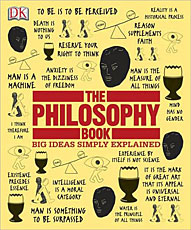"If we want to think seriously about ourselves, we have to see that we are always immersed in particular circumstances — circumstances that are often oppressive and limiting. These limitations are not only those of our physical surroundings, but also of our thoughts, which contain prejudices, and our behavior, which is shaped by habit.
"While many people live without reflecting on the nature of their circumstances, Ortega says that philosophers should not only strive to understand their circumstances better, they should actively seek to change them. Indeed, he claims that the philosopher's duty is to expose the assumptions that lie behind all our beliefs.
The energy of life
"In order to transform the world and to engage creatively with our own existence, Ortega says that we must look at our lives with fresh eyes. This means not only looking anew at our external circumstances, but also looking inside ourselves to reconsider our beliefs and prejudices. Only when we have done this will we be able to commit ourselves to creating new possibilities.
"However, there is a limit to the amount that we can change the world. Our habitual thinking runs deep, and even if we free ourselves enough to imagine new possibilities and new futures, our external circumstances may stand in the way of realizing these possibilities. The futures that we imagine will always collide with the reality of the circumstances in which we find ourselves. This is why Ortega sees life as a series of collisions with the future.
"Ortega's idea is challenging on both a personal and a political level. It reminds us that we have a duty to attempt to change our circumstances, even though we may encounter difficulties in doing so, and even though our attempts may not always succeed. In The Revolt of the Masses, he warns that democracy carries within it the threat of tyranny by the majority, and that to live by majority rule — to live 'like everyone else' — is to live without a personal vision or moral code. Unless we engage creatively with our own lives, we are hardly living at all. This is why for Ortega, reason is vital — it holds the energy of life itself."
